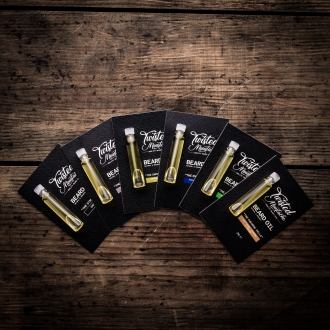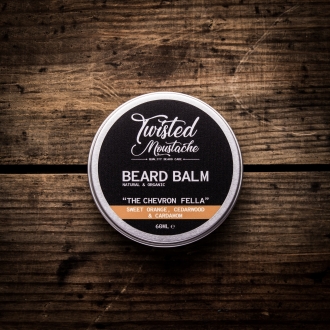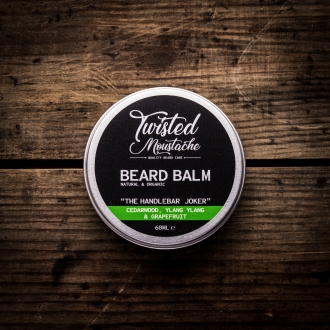The Dangers of Dehydration on Your Hair Growth
By Jack Shaw (Guest Post) | Last updated 1st April 2025
Imagine walking around the Sahara Desert, desperate for a drink of water. If your hair could talk, it would say it feels the same way when dehydrated. Lacking moisture can significantly hamper your hair and beard, so you must care for them. What happens if you don’t? Here’s what you need to know about the dangers of dehydration.
How Does Dehydration Negatively Affect Hair and Beard Growth?
When you lack water, the consequences extend to your hair and beard. Here’s how it adversely impacts your body:
1. Bodily Functions
Dehydration is more than a dry feeling in your mouth. This condition affects your bodily functions by throwing your organs out of whack.
The impact starts with your hormones. As a result, you may see decreased testosterone levels and consequences for your hair.
Testosterone affects hair and beard growth by stimulating follicles. You might not get the T-levels you need for hair production if you are dehydrated.
Blood circulation is another vital consequence of dehydration. Decreased water intake means your blood is less capable of delivering nutrients to hair follicles.
2. Brittleness
Fewer nutrients in hair could lead to increased brittleness. Hydration makes your beard and hair more elastic, emphasising the need for water intake.
Brittleness is among the last things you need in your hair because it causes breakage. Who enjoys dealing with split ends?
Hydration, or lack thereof, is a common cause of brittleness. However, it could start in your older years as your body slows down.
Regardless, pay attention to your hair if it feels dry and delicate. Try adjusting your hydration levels as an accessible preventive measure.
3. Shedding
Inadequate hydration disturbs your hair growth cycle and heightens the risk of shedding. You may consider your hair vital, but your body will disregard it in favour of your organs.
Your head and facial hair naturally shed, so don’t fuss about the occasional strand. However, you should worry if you experience excess hair loss and thinning.
4. Irritated Scalp
When it doesn’t rain, plants will dry out and risk dying on the ground. Your hair is the same way. Dehydration makes your scalp flaky and itchy, increasing your chances of having dandruff.
Massaging your scalp can be relaxing and increase blood flow. However, excess scratching may further harm your cuticles and break down the hair.
If your scalp feels itchy, dehydration could be to blame. Consider seeing a dermatologist for recommendations about medicated shampoos or other treatments.
5. Slower Growth
A fresh cut may make you glad you trimmed your hair and beard. Your hair should grow back in the following weeks and months, but dehydration can inhibit the process.
Blood circulation comes into play again because your body isn’t getting the nutrients it needs to foster growth. Therefore, you can count on less hair on your scalp and chin when you lack hydration.
Your hair should grow about one-eighth of an inch each week. If it’s a little more or less, you should still be in the standard range.
However, stagnant growth should cause concern and further scrutiny. While dehydration could be concerning, other factors could inhibit hair and beard growth.
What Causes Dehydration and Dry Hair?
You know dehydration harms your health, but why does it happen? Here are five root causes of dehydration and dry hair.
1. Lacking Water Intake
The first area you should consider is your water intake. Are you getting enough H2O in your body? Drinking more water can benefit your hair and beard.
The NHS recommends six to eight cups of fluids daily, including water. You can also get these liquids from other sources like sugar-free juice and milk.
You’ll need to increase your water intake based on your daily physical activity. If you work outside or play sports, your body will lose more fluids through sweat.
While many beverages provide hydration, others cause the opposite effect. For instance, caffeine and alcohol could dehydrate you through their diuretic effects.
2. Outdoor Climate

While liquid intake is within your control, other factors are less in your hands. For instance, the climate could dehydrate your body and cause brittle hair.
If you worry about dehydrated hair, spend less time in dry, arid climates. Living or travelling in a desert will dry out your hair and skin.
Excessive heat and cold can also harm your body and lead to dry hair. Higher temperatures make you sweat, and you must replenish those lost fluids. Conversely, frigid weather can enhance dryness if you don’t drink enough water and fail to monitor your hydration levels.
3. Heat Treatment

While a hairdryer is a convenient way to style your hair, the hot air could be counterproductive by removing essential moisture. What’s the solution?
Consider putting your blow dryer on the lowest heat setting or letting your hair dry naturally. You can buy an absorbent microfiber turban to remove excess water and reduce frizz.
Another option is using a heat protectant for your hair and beard. This product safeguards your strands from styling tools and minimises damage.
4. Harsh Shampoos
Shampoo is supposed to hydrate your hair, but the opposite can happen if it’s too harsh. Your preferred products could strip your hair of natural oils, making it feel drier.
Check your shampoo’s ingredients for harmful chemicals like sulfates. These polyatomic ions can cause fading colours and undo your hair stylist’s hard work.
Instead, your body needs more hydrating options that won’t detract from your hair’s hydration. When in doubt, consider natural ingredients with as few chemicals as possible.
While your head needs great shampoo, so does your beard. Your facial hair could benefit from cocoa beard shampoo, a natural and organic cleanser that keeps oils intact.
5. Medical Conditions
Some root causes of dehydration and dry hair could be out of your hands. Specific medical conditions may hinder your body’s fluid retention and ability to grow hair.
One example is hypothyroidism, occurring when your thyroid cannot produce enough hormones. Besides hypothyroidism, your body could also endure hypoparathyroidism, which causes lower calcium levels in your bloodstream.
You might also have an electrolyte imbalance, which occurs when minerals like sodium, potassium and magnesium become too high or low. Diabetes is another common cause of dehydration due to increased thirst and urination. This chronic condition can also cause high blood sugar and affect your sweat glands.
Tips to Ensure Hydration
Hydration might be underrated, but you shouldn’t forget it. Here are five tips to keep your hair and body healthy all day.
1. Prioritise Hydration

Use H2O to your advantage and keep your body healthy. If it means carrying around a big jug, so be it!
Some guys benefit from using bottles with time markers. Each level represents an hour on the clock and marks how much water you should drink, thus visually reminding you to hydrate.
When hydrating your body, you should also consider the type of water you consume. Mineral water comes from protected underground sources, and it’s terrific for your health. Experts say mineral water benefits most people, as it contains calcium and magnesium. Other excellent options include spring and artesian water.
2. Diet and Vitamins
Besides water, your diet matters for your hydration and hair health. While fluids can increase your hydration, you can also get water from fresh fruits and vegetables like cucumbers, melons, lettuce and strawberries.
You could be at a disadvantage if you eat a high-sodium diet. Check the nutrition labels to ensure you aren’t overconsuming this mineral.
Vitamins are another essential part of your body’s hydration. From potassium to vitamin C, your body loves these nutrients to keep your skin healthy and retain moisture.
Of all the vitamins, which one is most vital for your hair? Some say it’s biotin, also known as B7. This nutrient produces keratin that supports your hair’s strength and texture.
3. Humidity
Be comprehensive when considering your hydration levels. The details could be as minor as your nightly sleep environment.
For instance, a dehumidifier draws moisture from the air, forcing your skin and respiratory system to work harder. Sleeping with a humidifier by your bedside could create the opposite effect. These machines send moisture into the air, hydrating your skin and body as you sleep.
Humidifiers are especially beneficial in the winter when temperatures dip. The arid atmosphere could dry out hair and beards, so you’ll need to increase your home’s moisture.
4. Cold Showers
Stepping into a cold shower may seem intimidating. However, it could be what your body needs to stay hydrated.
Cold showers help your beard and hair retain natural oils while locking in moisture. You also benefit from less inflammation and a soothing sensation on your skin.
One of the best features of cold showers is circulation. Once your aquatic session is over, your blood vessels dilate and see increased flow.
Cold showers may initially be unpleasant, so start with short sessions and allow your body to adapt gradually.
5. Establishing a Routine
Remaining hydrated involves being consistent over time. If you drink water and prioritise hair and beard care, you’re on the road to a healthy body and skin.
Build habits by setting reminders on your phone throughout the day. These notifications could be checks to ensure you’ve had enough water, taken your vitamins and applied conditioning products to your hair and beard.
Adjust your routine based on the day’s activities. For instance, you’ll need to drink more water after a strenuous sweat session.
While good habits are essential, you should also listen to your body. Don’t wait until you notice you’re thirsty. Stay ahead of the game by hydrating throughout the day.
Boosting Body and Beard Hydration
Water is an essential part of life — you literally can’t live without it! While critical to hydration, fluids also influence your hair and beard growth.
Hydration can positively affect your hair’s health by delivering nutrients to your follicles. If you maintain it, you improve your chances of proper growth.
While water influences your body’s hydration, several other factors are also involved. From humidifiers to hair products, cover all your bases.
Do what you need to boost hydration and keep your body healthy. Use phone timers, labelled water jugs and other helpful tools.
Jack Shaw is a writer, editor and grooming enthusiast. His explorations of men’s health, fitness and fashion can all be found on Modded, a men’s lifestyle publication on which he serves as the senior writer. Reach out to him via LinkedIn or subscribe to the Modded Minute.






